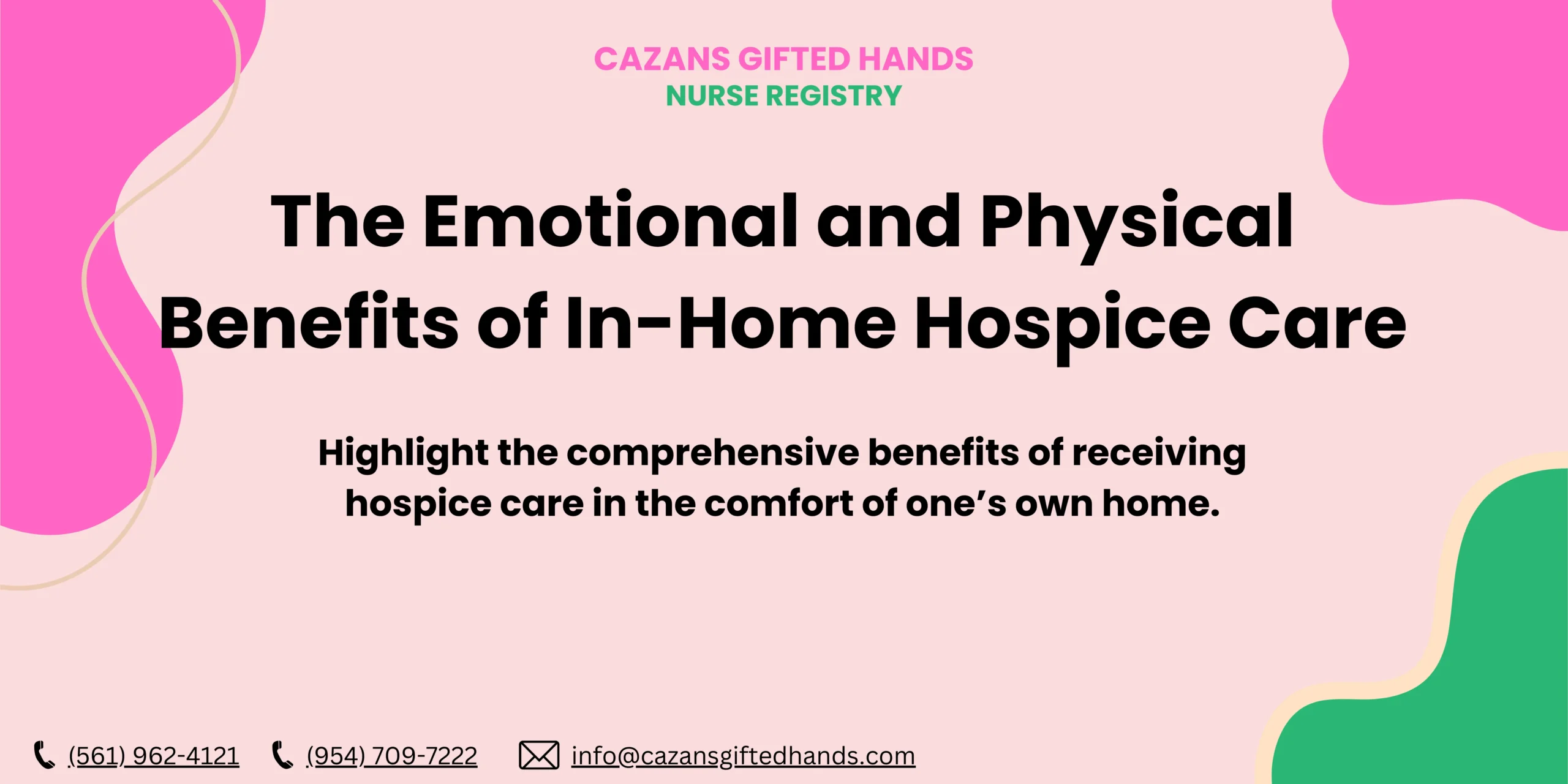Hospice care focuses on providing comfort and support to patients with terminal illnesses and their families. In-home hospice care allows patients to receive this care in the comfort of their own homes. This blog explores the emotional and physical benefits of in-home hospice care.
Comfort of Familiar Surroundings
Staying at Home
One of the most significant benefits of in-home hospice care is that patients can stay in familiar surroundings. Being at home provides a sense of comfort and security, which is particularly important during the end-of-life stage. The familiarity of home can help reduce stress and anxiety for both patients and their families.
Personalized Environment
In-home hospice care allows for a personalized environment where patients can be surrounded by their personal belongings, pets, and loved ones. This personalization contributes to a better quality of life and enhances emotional well-being.
Emotional Support for Patients and Families
Comprehensive Support
Hospice care provides comprehensive emotional support for patients and their families. This includes counseling, support groups, and one-on-one interactions with trained professionals. Emotional support helps patients cope with the fear and uncertainty associated with terminal illness.
Strengthening Family Bonds
In-home hospice care allows families to spend quality time together in a comfortable setting. This time can be spent creating lasting memories, offering support, and expressing love. The presence of family members can provide significant emotional comfort to the patient.
Pain and Symptom Management
Effective Pain Relief
A key component of hospice care is effective pain and symptom management. Hospice professionals are skilled in using medications and therapies to manage pain, nausea, and other distressing symptoms. Effective pain relief improves the patient’s physical comfort and overall quality of life.
Holistic Approach
In-home hospice care adopts a holistic approach, addressing not only physical symptoms but also emotional, spiritual, and social needs. This comprehensive care ensures that all aspects of the patient’s well-being are considered and treated.
Personalized Care Plans
Tailored to Individual Needs
Hospice care plans are personalized to meet the unique needs of each patient. Care plans are developed in consultation with the patient, family, and healthcare providers, ensuring that all preferences and needs are addressed. Personalized care plans enhance the effectiveness of the care provided.
Flexible and Adaptive
As the patient’s condition changes, hospice care plans can be adjusted to provide the appropriate level of care. This flexibility ensures that patients receive consistent and suitable care throughout their hospice journey.
Support for Caregivers
Respite Care
In-home hospice care includes respite care options to give family caregivers a much-needed break. Respite care allows caregivers to rest and recharge while ensuring that their loved one continues to receive professional care. This support helps prevent caregiver burnout and maintains the overall well-being of the family.
Guidance and Education
Hospice professionals provide caregivers with guidance and education on how to care for their loved one. This includes training on managing symptoms, administering medications, and providing emotional support. Knowledgeable caregivers can offer better care and feel more confident in their role.
Conclusion
In-home hospice care offers numerous emotional and physical benefits for patients and their families. From the comfort of familiar surroundings and comprehensive emotional support to effective pain management and personalized care plans, hospice care enhances the quality of life for those facing terminal illness.
For more information about our in-home hospice care services, visit our hospice care services page.To learn more about our location, check out our Google Business Profile.

